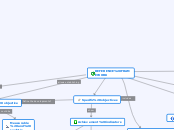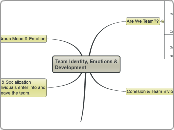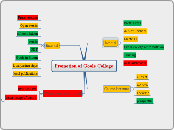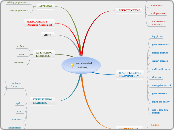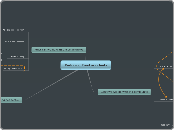Example of article
Inspiratory muscle training for children and adolescents with neuromuscular diseases: A systematic review
Reference
Human A, Corten L, Jelsma J, Morrow B.Inspiratory muscle training for children and adolescents with neuromuscular diseases: A systematic review.Neuromuscular Disorders.2017; 27 (6): 503–517
the safety of IMT and its efficacy with regard to improving inspiratory muscle strength and endurance, exercise capacity, pulmonary function, dyspnoea and HRQoL in paediatric and adolescent patients (5–18 years) living with NMDs?
Novel
Guidelines for effective intervention protocols
Research on physiotherapeutic interventions
In children with NMD
Important for
Reduces
system and protocols
costs to the health
Is useful for
Reduce morbidity and mortality in patients with NMD
Concepts
muscle training
NMD risks and consequences
Neuromuscular deseases NMD
Determine inclusion & exclusion criteria
Evaluate rate of hospitalisation
Analyze others abstracts & criterias
Analyze the articles select
General Objective
TO DETERMINE
GUIDE
WHAT IS
Limited information
Exercise prescriptions
Impact on inspiratory muscle IMT
Health-related quality of life HRQoL
Pulmonary function
Exercise capacity
Endurance
Children with neuromuscular diseases.
High risk of morbidity and mortality
Bibliography Serrano ME. How to built a Reference Framework [Doc]. Unit 3. Research Seminar III. 2018.
Toro I, Parra R. Fundamentos epistemológicos de la investigación y la metodología de la investigación. 1st ed. Bogotá: Fondo Editorial Universidad EAFIT; 2010.
Justification
Why is necessary
resources
Time
money
The value for the knowledge
A strong support
Describe the purpose
Give an account of why is a new topic
Check
State of art
REFERENCE FRAMEWORK
Concepts of study
Theory of the problem or objective
population or object under study
Intervention to be performed
Time and study follow up
Resources to develop the project
validity bibliografic or reference
Details and definitions
Relevant info
a summary
Updated information
Specific objectives
Achievement indicators
Precise actions
Interdependet character
What? and what for?
The general objective
Measurable and realistic
The time and place of the study
The action
All the study variables
Problem approach
Identify
Gaps or lacks in the knowledge
Set
Limits of the study
Describe
Problematic area
Central question or problem
a guide
the support (key data)
The development of investigation
the brief conceptualization
Introduction topic
Current situation
Statics data
A topic sentence
